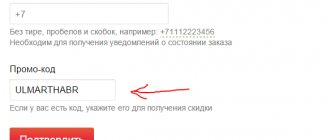Legislation
The obligation to make monthly payments for housing and communal services is fixed in Article 155 of the Housing Code of the Russian Federation dated December 29, 2004 No. 188-FZ. According to the law, the owner must transfer funds to the management company’s account no later than 10 days after the end of the month following the billing period.
Payment may be made later if the condition is specified in the agreement between the service provider and the apartment building. The decision to postpone the repayment of debt for housing and communal services can be made at a general meeting of residents.
Attention! According to Art. 155 of the Housing Code of the Russian Federation, payment after the specified period is considered a violation of the agreement between the tenant and the management organization. But liability for non-payment occurs if contributions are delayed by 31 days or more.
What happens if you don't pay for utilities?
That is, we get the following picture, for example, according to the monthly standard, payment for hot water supply will be 2000 rubles per month. In order for the supply of utility services to be suspended, you need to owe 4,100 rubles, which will already be more than two monthly standards. Only then does the service provider have the right to suspend the provision of this service, but not immediately, you are also given time to repay the debt, and only after the allotted time is up, you will be sent another warning that the supply of the service will be suspended for a certain period, and after this period, your service will be suspended.
We recommend reading: Grounds for Seizure of a Land Plot from the Owner
List of mandatory payments
The management company can sue for non-payment of utilities if the contract is not observed for 3 months or more.
When calculating the payer's debts, contributions for mandatory housing and communal services are taken into account:
- Heating.
- Water supply.
- Drainage.
- Electricity.
- Garbage removal.
Internet and television are not included in the list of required services. If debt repayment is refused, providers limit access to the tariff. Other housing and communal services providers also go to court if the debt on receipts exceeds 10 thousand rubles.
From the video you will learn what will happen if you do not pay for housing and communal services:
What should the owner do?
A situation can become very unpleasant when some apartment residents are conscientious payers, while others are not. Let's look at the two most typical cases. And the first of them occurs when one of the owners does not pay for utility bills.
This is important to know: How to get rid of penalties on utility bills
One of the co-owners does not pay
Let’s say two people own an apartment, both are registered and of age. The apartment does not have all kinds of meters installed. This means that the rent is very closely related to the number of people registered in the housing. It is quite obvious: the “communal apartment” should be divided into two. What if one of them doesn’t live in this apartment? There are a lot of options here.
- When you go on a business trip, for treatment, or just to visit relatives, you can reduce the amount of utility bills. You just need to prove your absence: present air or train tickets, registration documents at your place of stay, etc. You must apply for recalculation as soon as possible upon your return. In a month, no one will be doing any recalculations anymore. Absence is allowed for six months.
- What if one of the owners simply cannot live in this apartment? For example, does the second owner interfere with this? In fact, both still have to pay. The “exile” will have to act through the courts. For example, demand that obstacles to living in your own apartment be removed.
- What to do if the owners assume that disagreements may arise between them when paying for utilities? They have the right to separate personal accounts and literally pay everyone for themselves.
Finally, we will tell you what to do if tenants do not pay for utilities.
Tenants don't pay
The owner can rent out his home, and the responsible tenant can sublet it. At the same time, the obligation to pay utility bills is not shifted to the tenants. The owner or tenant is required to pay for everything, even if the actual tenants have already accumulated a significant debt. Such defaulters will have to be dealt with through the courts.
It is a little easier to find yourself in debt for utility bills than to the same creditor bank. There will be no huge fines, cosmic penalties, endless calls and visits from collectors. However, measures to combat non-paying tenants may become stricter at any time. So it is better to solve financial problems as soon as possible and without discrepancies with the law. By the way, you may not have learned how to recognize rent arrears yet, but we will tell you all the nuances! We hope that after reading this article you will be aware of what will happen if you don’t pay utilities, how to avoid paying rent penalties, and whether it’s worth doing.
Consequences of non-payment of utilities
Rent debt for 90 days or more leads to negative consequences for the apartment owner.
Homeowners' associations and management companies, in order to return cash for housing and communal services provided, apply the following types of penalties:
- Warning.
- Accrual of fines and penalties.
- Repeated warning.
- Shutdown (full or partial).
- Forced collection of debt through court.
Expert opinion
Klimov Yaroslav
More than 12 years in real estate, higher legal education (Russian Academy of Justice)
Ask a Question
Measures to repay the debt are taken gradually, starting with a warning and ending with legal proceedings. If the owner does not intend to repay the rent debt, he faces the loss of his reputation and even property.
Warning from utilities
The first actions against a willful defaulter are preventive measures. Utility companies are not interested in immediately disconnecting a customer from service. But if his debt exceeds 10 thousand, the company suffers losses.
Reference! According to the law, the first penalty is written notification of the existence of a debt. The customer may receive a receipt with the amount due or a separate warning.
The notification is sent to the registered address of the property owner.
The message from utility services states:
- Amount of debt.
- Penalties and fines.
- Payment deadline.
- Consequences for the owner if he refuses to pay.
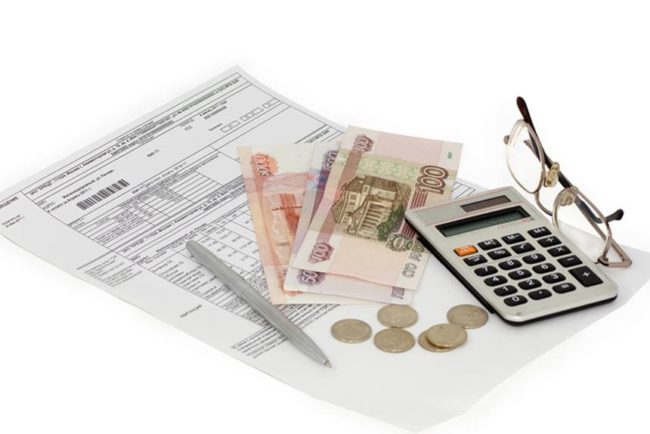
The warning is received within 20 days from the date of debt formation. According to Art. 155 of the Housing Code of the Russian Federation, the period after the expiration of a 31-day refusal to make payments to housing and communal services is taken into account. The homeowner may receive notice of the need to repay financial obligations 2 months after the debt was incurred.
If the property owner chooses to wait and not pay, the warning will be followed by another penalty - a fine.
Calculation of a fine
After 31 days of non-payment of the debt, penalties are applied to the owner. Clause 14 of Article 155 of the RF Housing Code states that the amount of recovery is 1/300 of the refinancing rate established by the Central Bank of the Russian Federation in relation to the amount of debt. As of May 25, 2021, the current refinancing rate is 7.75% per annum.
Fines for debtors who do not pay for 91 days or more increase to 1/130 of the refinancing rate. Penalties are accrued daily until obligations to the creditor are fulfilled. If a debt lasts more than 3 months, the amount of the fine does not increase.
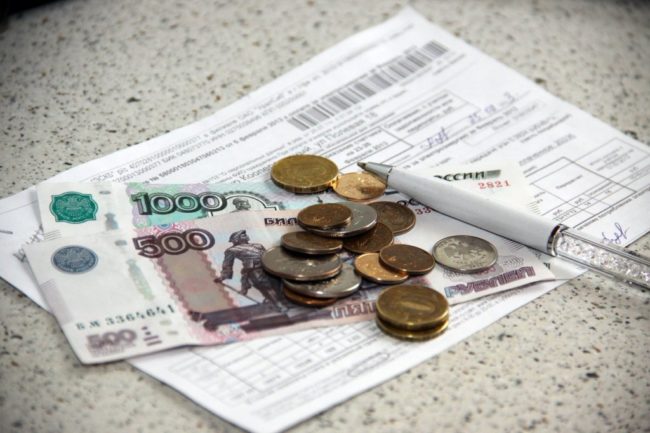
Important! The calculation of the fine is regulated by law. Utilities cannot charge a customer more than 1/130 of the refinance rate based on the total amount owed to date. The accrual of fines in excess of the established norm may lead to a reverse claim of arbitrariness against the housing and communal services.
Before collection, the debtor receives a warning. In the absence of actions aimed at getting rid of debts, the housing and communal services provider again issues a warning.
Repeated notifications
Utilities do not disconnect customers from service until the second notice is ignored. It arrives 20 days after the end of the deposit period.
It will not be possible to avoid paying for a long time after receiving the second notification.
The document is the last warning, after which the debtor may lose the use of the service completely. What is stated in the repeated notice:
- The full amount of the debt, taking into account accrued penalties and fines.
- Repeated payment terms.
- Possible consequences if you ignore your obligations to repay the debt.
- Timing of initial service deactivation.
- Date of termination of the contract with housing and communal services.
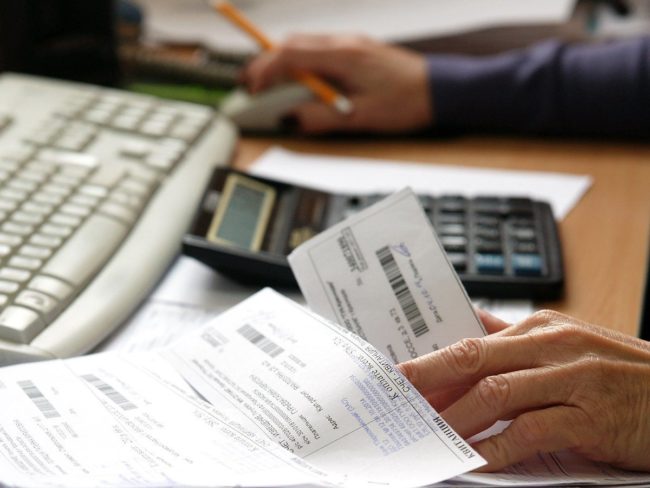
Reference! The contract is considered terminated from the moment the apartment is completely disconnected from the supply of housing and communal services. By law, the management company is obliged to notify residents no later than 3 days before the planned cutoff of rent.
Utilities do not have the right to terminate the contract without written notice. For this, they face a lawsuit from residents who may complain about violation of the law.
Disconnection from the service
Ignoring all warnings and refusing to repay the debt threatens the owner with utility service disconnection. Large rent debt can speed up the process.
If the company has received less than 50 thousand rubles, notifications about possible restrictions on the service may arrive earlier than 3 months after the refusal to make payments for the apartment.
Renewal of the contract: features
Once the supply of utility services is cut off, the property owner will not be able to simply pay the debt in order to use the amenities again.
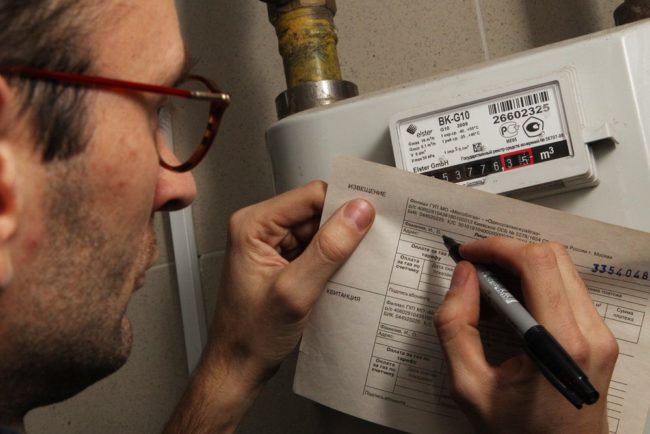
To re-enter into a contract, the client must:
- Pay the debt, including all penalties and fines.
- Bring receipts confirming the fact of transfer of funds to the management company.
- Write applications for renewal of the contract with the HOA or management organization.
Expert opinion
Klimov Yaroslav
More than 12 years in real estate, higher legal education (Russian Academy of Justice)
Ask a Question
Resumption of service is possible after 3 working days from the date of registration of the application at the utility office. Sometimes the process drags on for 10 days or more if the payer lives more than 50 km from the utility branch, or all employees are busy.
Transfer to court
If the owner does not pay debts after notices and service restrictions, utility services file a claim in court.
In relation to persistent defaulters, the court may take various penalties:
- Seizure of accounts and property.
- Ban on travel outside Russia.
- Temporary revocation of a driver's license.
- Confiscation of property, including property.
- Eviction of the debtor and his family from housing.

The latter penalty is applicable only to citizens living under a social tenancy agreement. They are most at risk of losing their place of residence if they have been in debt for 6 months or more. A municipal apartment can be taken away after 7 months of late payments if the court rules in favor of the utility services.
Evicting tenants during a foreclosure process is not possible if the property owner has no other property suitable for occupancy. The company also does not have the right to take away the only housing from children, even if the owner has not paid for utilities for a long time.
Expert opinion
Klimov Yaroslav
More than 12 years in real estate, higher legal education (Russian Academy of Justice)
Ask a Question
When there is a large amount of debt for utility services, even companies that are late in payments for six months are sued. The debtor learns from the notice that his case is being considered in court. It is personally delivered by the postman against the signature of the property owner.
If you have to save: how long can you avoid paying rent?
- Accrual of penalties. By law, this is 1/300 of the refinancing rate per day. The latest known refinancing rate is just over 8%. This means that for every thousand rubles of debt, 28 kopecks will “run up” every day. Little things? What if the debt is already 100 thousand rubles?
- Disconnection of some utilities. Residents should not be deprived of heating and cold water. But you can easily be left without a hot one. True, in many old buildings it is impossible to “cut off” a separate apartment, so non-payers enjoy all the benefits of civilization. In any case, such preventive measures must be notified 30 days before their use.
- Failure to issue all kinds of certificates. For example, to apply for a housing subsidy, you need a certificate of the amount of utility bills. Representatives of service organizations often engage in this type of blackmail: pay off the debt and you will receive a certificate. Such measures are illegal. Of course, the defaulter of the utility bill is wrong, but the management companies are obliged to fight him only by legal means.
- Exposing debtors to public disgrace. There are times when residents of a building see notices on the entrance doors: such and such an apartment has such and such an amount of debt. The debt will not be repaid - get ready for court. In such advertisements, options are possible, for example: “There is such and such a debt on your house, the heating will not be turned on! Conscientious payers will suffer because of debtors!” However, any management company can pay dearly for such “pearls”.
- Trial. Not every service organization decides to take such measures. The trial is a slow process. Subsequent collection of funds may also be delayed.
- Eviction. This measure applies only to municipal housing. The owner cannot be evicted from his home in order to sell it and compensate for losses. According to some reports, the possibility of adopting such a law is being considered.
We recommend reading: Land title document
Legal methods of non-payment
Clients may not pay rent if:
- The service is provided inappropriately.
- They have already paid utility bills in the current period. Sometimes you receive repeated notifications demanding payment, which should be ignored if all debts are paid off.
- The supplier provided incorrect details. This happens when the management company changes. It is recommended that you contact the supplier's office to obtain a current invoice number or ask for a new payment notice.
- There was an overpayment for the previous period. Incorrect meter transfers or voluntary contributions above the norm can be the reason why homeowners have the right to legally not pay for several months.
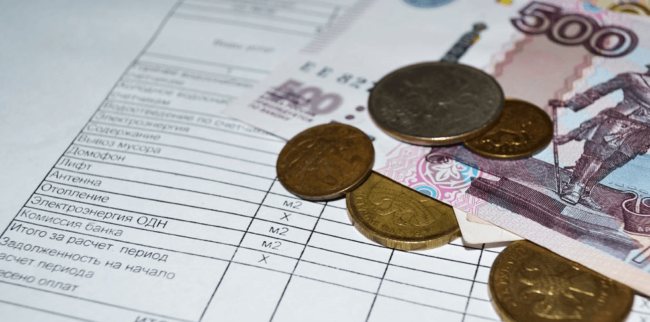
It is the owner's duty to pay utilities. In the absence of legal reasons or benefits, the owner becomes a debtor if he does not pay for more than 31 days.
What awaits the debtor?
What happens if you don't pay rent? If the period of debt on utility bills exceeds 3 months , then the defaulter receives a notification from the management company about a possible restriction in the provision of utility services within 30 days.
If during this time the defaulter does not repay the debt for utility services, then the management company has the right to suspend the provision of services at the specified address without a court decision and apply to the courts with a demand for debt collection.
If the court makes a positive decision, a procedure will be launched to collect debts on utility bills.
Is it legal to charge for intercom every month? Find out about this from our article.
Consequences of non-payment for owners
For owners of privatized apartments, debt collection threatens an inventory and forced sale of property. After the inventory of the property, the owner is given the last opportunity to repay the debt within 5 days.
If the defaulter does not repay the debt, then the described property is seized and sold.
Also, the owner of a privatized apartment faces confiscation of wages and other sources of income to pay off the debt.
This is important to know: Registration of a deed of gift for a room in a communal apartment
Implications for council housing tenants
For tenants of council housing, the consequences may be more serious than for owners. In addition to the measures applied to owners, the tenant faces forced eviction from the occupied living space.
By law, such measures apply to debtors whose debt exceeds 6 months.
In this case, the tenant and his family members are provided with municipal housing based on the minimum social norm (6 m2 per person).
According to the law, relocation cannot be carried out if the housing from which the tenant is being evicted is the only one available for the defaulter and his family members.
Information on the procedure for replacing hot and cold water meters can be found on our website.
Privileges
It is not recommended to wait until the debt grows to 300 thousand: if you have problems repaying housing and communal services, it is better to contact the supplier directly. But some categories of citizens of the Russian Federation have the right not to pay utility bills completely or partially. These are beneficiaries who are allowed by the state to reduce the cost of maintaining their property by up to 100%.
According to Article 159 of the Housing Code of the Russian Federation, subsidies for utilities are available only to citizens of the Russian Federation.
Benefits are provided:
- veterans of the Great Patriotic War and military operations;
- disabled people of groups 1 and 2;
- Knights of the Order of Glory;
- Heroes of Russia and the USSR;
- labor veterans;
- some pensioners.
To receive a subsidy for housing and communal services, you should contact the territorial social protection authority with a passport and a document confirming your right to the benefit.
You haven't paid rent for three months? The tap will be turned off
Many people know that upon returning from a long vacation you can ask for a recalculation of utility bills. According to the new rules, this can be done even before leaving for vacation. Ask the management company not to charge rent, and when you return, only provide certificates. This applies to all services, except for fees for the maintenance of common property and heating. True, this will become more difficult to do. The list of documents confirming departure has become wider. In some cases, they will have to be duplicated; signatures of officials, seals and registration numbers will be needed. For example, the new list included a certificate from a dacha or gardening association. But if during your vacation you ask the management company to seal the taps in your apartment, then no certificates will be needed.
What you need to know
Citizens of the Russian Federation who do not have a debt to the management company can receive a subsidy for paying for utility services (Article 159 of the Housing Code of the Russian Federation).
If available, preferential categories have the right to receive reimbursement of housing costs if the payment is late due to a valid reason:
- Delay of wages.
- Loss of a job, inability to get a new job (if there are attempts).
- Inpatient treatment for the property owner or family members.
- The presence in the family of a minor child, a disabled person or an incompetent member of society.
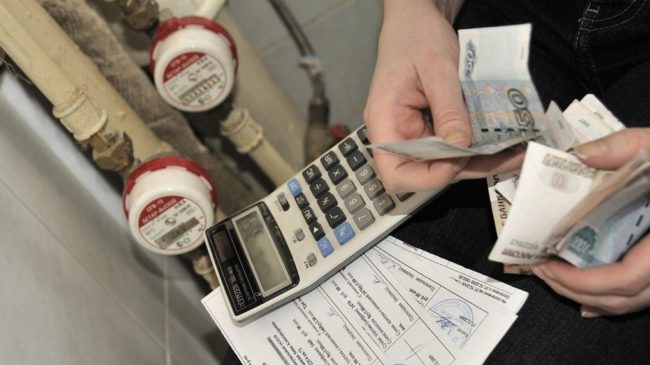
Expert opinion
Klimov Yaroslav
More than 12 years in real estate, higher legal education (Russian Academy of Justice)
Ask a Question
The reason why the debt arose to public services requires documentary confirmation: a certificate from work, about the composition of the family, from the social service.
Actions of bailiffs in case of violation
If in a privatized apartment the debtor does not pay the obligations, or the tenant does not fulfill the requirements under the rental agreement, the bailiffs can recover funds from such clients to the service provider.
Actions of FSSP employees:
- Notice of seizure. Warning in the form of an SMS message from all banks with which the client opened accounts or cards.
- Collection in the amount of debt for utilities. Bailiffs can write off no more than 50% of the debtor’s income to the management organization.
- Seizure of property. If the client’s funds or income are insufficient, FSSP officers may seize the citizen’s property.
- Transfer of property as payment for a debt. For a debt of 100 thousand, the apartment will not be taken away, but an arrest will be imposed. Defaulters may lose their housing if they owe a debt of 1 million rubles or more.
Debt repayment methods
The debtor has the right to deposit funds into the utility account in any convenient way:
- pay at the cashier. During a personal visit, the client can also change the terms of the contract or demand a recalculation;
- make a transfer at the bank. The period for crediting cash is up to 3 working days. Financial institutions charge a commission of 0–5% for services;
- pay online. Through online banks, wallets or payment services. This is the fastest way to pay for utilities, since funds are credited 1 minute after the transaction;
- through payment terminals. Receipt time is from 1 minute to 24 hours. It is recommended to keep receipts to prove the transfer of funds if a technical failure occurs.
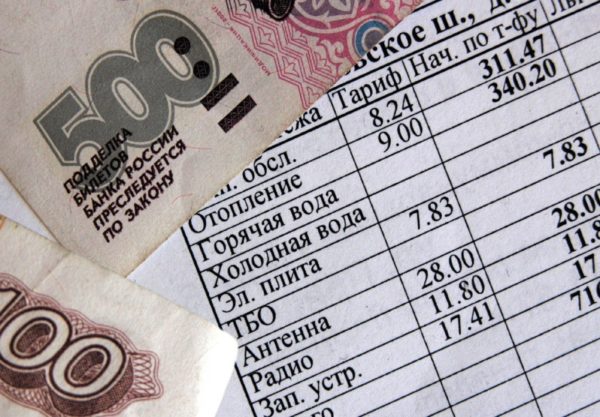
Management companies do not impose requirements on debtors regarding the method of making payments to repay obligations. It is beneficial for HOAs and other organizations that the home owner pays off debts as quickly as possible, so they accept any receipts as confirmation that funds have been deposited.
You will learn what happens if you don’t pay utilities from the following video:
Procedure for disconnecting services for non-payment
Housing and communal services services, after a written warning (3 days in advance), send an employee who blocks the supply of electricity, gas, and water to the debtor. Heating is a service that utility companies will not be able to turn off, even if there is a debt. The rule is stated in the Decree of the Government of the Russian Federation of August 8, 2012 No. 808. Restrictive actions can only be applied in the event of a temporary elimination of the malfunction. Complete isolation and termination of the contract cannot be carried out only at the initiative of the housing and communal services supplier.
If a client refuses to pay for utilities, he may lose his property. Fines for late payments are accrued starting from the 2nd month. The company may require the funds to be paid in a lump sum or allow the payment to be split over several periods.
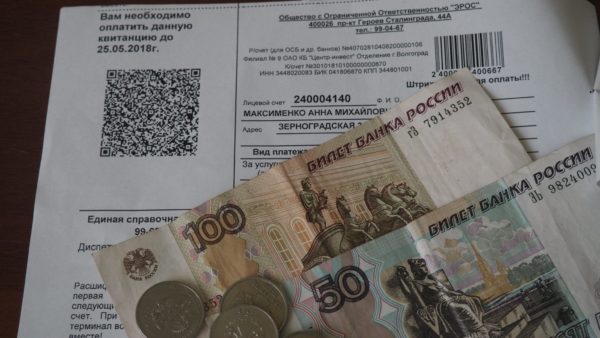
Advice for debtors:
- Pay all overdue payments within 3 months. Once fines are assessed, the case will go to trial.
- Do not refuse cooperation if the supplier offers other tariffs and the opportunity to recalculate.
- Take advantage of programs that allow you to reduce debt, learn about possible benefits and co-financing programs.
- Respond to notices and notices received by mail from representatives of utility services.
- Contact the office in person if you have financial problems. Employees do not take harsh measures if the client voluntarily explains why he is delaying payment.
The debtor's cooperative actions may help him negotiate a possible deferment of payments and a reduction in penalties. This will reduce the amount of fines and preserve property ownership.


